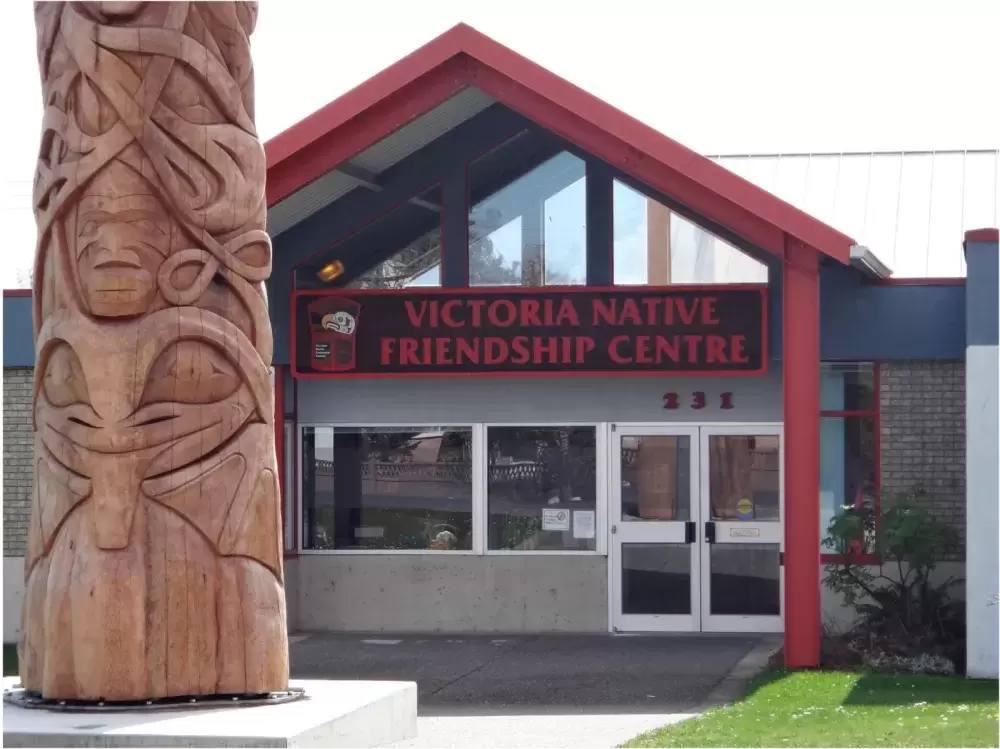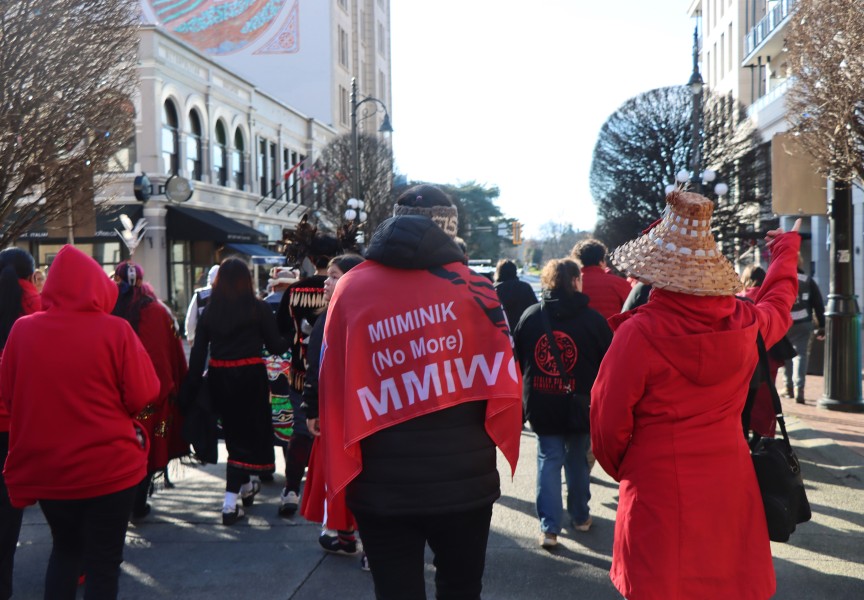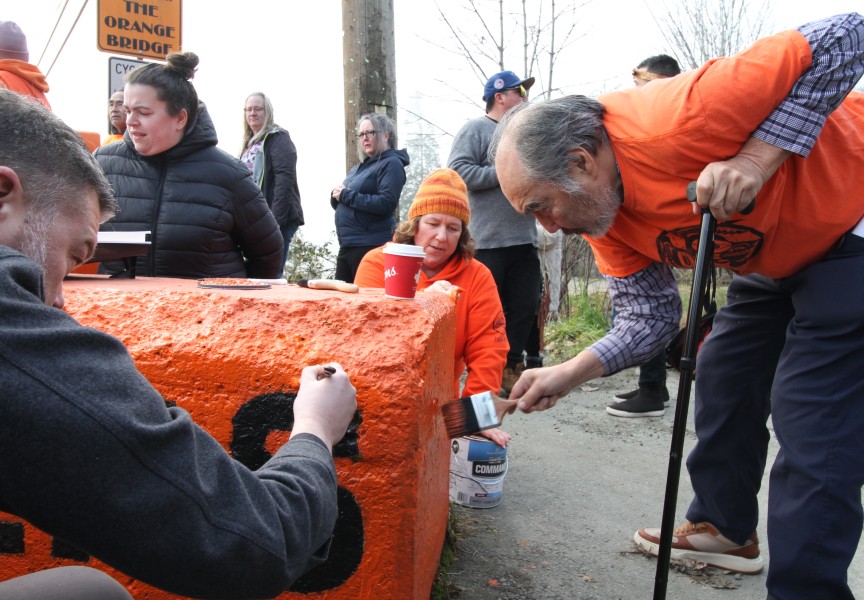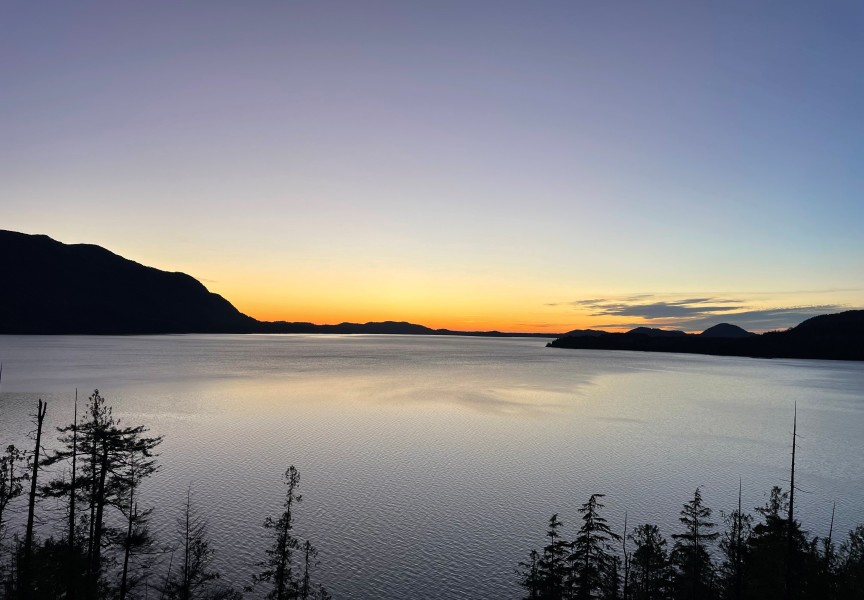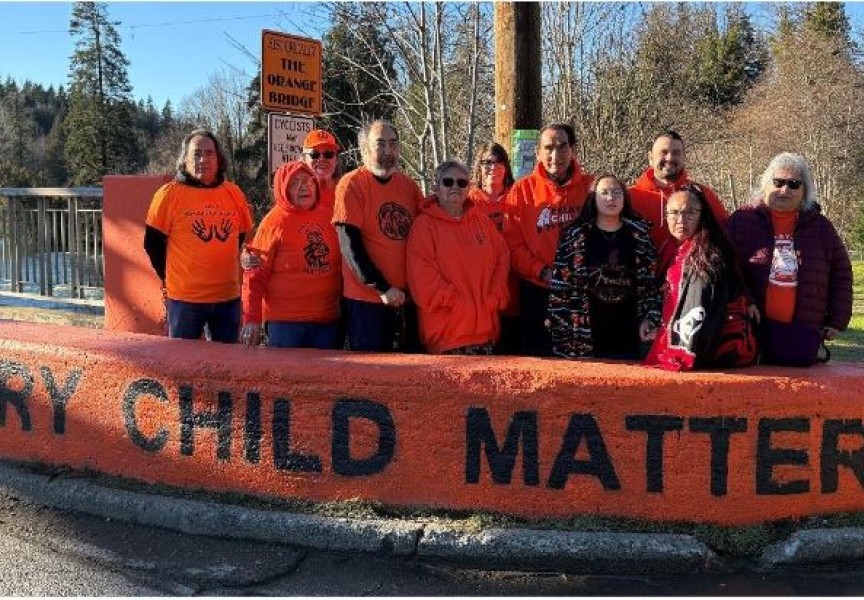The Victoria Native Friendship Centre (VNFC) has launched an Indigenous-led learning opportunity that supports reconciliation through community-based learning.
The Community Learning Program began in April and runs for about four weeks, starting with a week of online learning. The program includes an eight-hour session of in-person discussion each week for the remaining three weeks. It runs in cohorts of 15 to 20 people, with both Indigenous and non-Indigenous participants.
This program was developed as a direct result of the work done by the Victoria Urban Reconciliation Dialogue (VURD), where the community came together to understand the reconciliation needs of its residents. It supports the VURD Blueprint focus area of Education, for the development and promotion of learning resources, anti-racism tools and cross-cultural learning opportunities.
Participants first learn about key reconciliation documents such as UNDRIP, the Truth and Reconciliation Commission’s Calls to Action, and the final report of the National Inquiry into Missing and Murdered Indigenous Women and Girls.
Tanya Clarmont, VNFC’s community learning director and program facilitator, said before getting into some of the more ‘heavy’ historical aspects of Indigenous history, she works with participants to create a safe space.
“One of the first foundational pieces we talk about is kindness and the importance of being kind to others and the value of that, and then we explore our emotions and how those influence the way we behave, how they influence our relationships with others because a lot of Indigenous spaces can be quite emotional spaces,” Clarmont said. “When we transition to learning about history and the impacts of colonization, we’ve already created safety in the group.”
Clarmont said it’s important to balance the heavy subjects with joy and celebration.
“We do an activity called net/paddle which is an activity to help people understand colonization through the personal stories of others and then after we do that very hard, heavy work we celebrate Indigenous culture, communities and innovation,” Clarmont said. “I feel like [the program] is relevant to everybody in the whole community.”
Clarmont said the program was originally created for the friendship centre staff and volunteers, but has expanded to being offered to the general public. She believes the program is bridging a gap by offering not only online learning, but in-person learning that’s specific to the Victoria area.
According to a 2020 report by the Victoria Urban Reconciliation Dialogue, more than 17,000 Indigenous people from various cultural backgrounds across Canada live within Greater Victoria.
Designing the framework for the program was a collaborative effort between the VNFC, representatives from local First Nations, elders from the Métis Nation and non-local nations.
“We do have someone Nuu-chah-nulth that advised and contributed on the design team,” Clarmont said. “In the local learning we talk about Vancouver Island…we talk about the three groups that live on the Island, so Nuu-chah-nulth included.”
Clarmont said those looking to sign up for the course can visit the VNFC website and that dates for 2023 will open up in January.
“The response from community has been overwhelmingly positive and the request for access is growing,” Clarmont said. “I’m sure by the time we come back in January we will have a waitlist. Expansion is a big priority for us and that’s the next piece of work we will do.”

